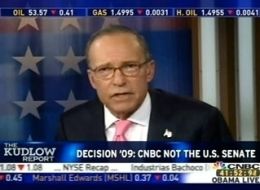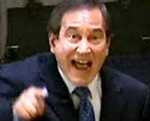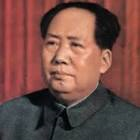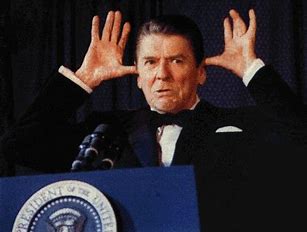Financial journalism used to be a straightforward presentation of market, company and economic facts. It was popular among business people and investors because it was predictably boring to other audience. It was just the facts.
However, almost imperceptibly over the past decade or so, financial journalism, especially on cable, has become blatantly pro-corporate in its daily news presentations and ever-present commentaries and editorials.
This new distorted version of financial journalism has paralleled the deification of laissez faire capitalism (aka neoliberalism) and the ascent of other conservative economic beliefs about the dangers of regulation, unionization, consumer rights and even global warming. Pro-corporate, on-air commentators have even adopted some of the aggressively confrontational interview styles used by their conservative political counterparts to foster the sensationalism that drives ratings.
Anyone who has watched financial journalism over the past few decades knows we have come a long way from Louis Rukeyser’s genteel “Wall $treet Week.” On this show, economists, fund managers and CEOs were escorted to a sofa by a formally-dressed woman who never said a word. Then, the seated Rukeyser would calmly begin a polite dialogue with his guests about current market news and predictions.
“…on-air anchors and reporters in financial journalism today unabashedly push conservative,
neoliberal, free-market economics exclusively into straight financial reporting.”
It’s a very different world today in financial journalism. CNBC’s Jim Cramer uses everything, including a rubber chicken, to fan the flames of day trading or make some prediction for which he is never held accountable.
Tainted Financial TV Journalism
Yet while financial journalism has evolved to accommodate electronic trading, derivatives strategies and global trading, it did not historically accommodated changes in national political beliefs. Rukeyser, for instance, would only mention Republicans and Democrats when there was a change in the White House or a move that affected tax policy. On a weekly basis, his focus was on company and market developments, buttressed by recommendations from his guests about specific stock picks or sectors.
It is very different today in broadcast financial journalism where CNBC, FOX and to a lesser degree, MSNBC, have on-air anchors and reporters who unabashedly push conservative, neoliberal, free-market economics exclusively into straight financial reporting. At times, viewers are being victimized by a handful of ideologue political activists posing as financial journalists.
When this happens, financial journalism becomes tainted. This affects the reporting and the credibility of entire networks. Worse, it presents incomplete or distorted news to unsuspecting viewer-investors. It also perpetuates the stigma of the “corporate media” as a real threat to objective journalism that seeks to push its own special agenda of pro-corporate, conservative values.
The Worst Offenders
* CNBC’s former economics reporter Larry Kudlow, now White House advisor, who said on-air that there were no victims in the historic LIBOR price fixing scandal. This price fixing event was one of the largest and longest frauds committed on millions of people who relied on LIBOR to peg their short- and long-term borrowing for personal and commercial loans on everything houses and autos to commercial property and airplanes. Kudlow’s ridiculous statement smacks of an effort to spread pure intentional misinformation.

• CNBC’s Joe Kiernan said he doubted that global warming was a scientific fact. Kiernen said that climate change and the higher temperatures evident in January 2015 were likely not a result of increased Co2, but something else. “It’s almost like witchcraft,” Kiernen said. “In the middle ages it was witchcraft. You would have attributed adverse weather events to witchcraft.”
• MSNBC’s Chuck Todd, who has proven to be a wimpy interviewer, tried to challenge then-candidate Bernie Sanders opinion that Wall Street’s business model is based on fraud. Todd missed the entire point of Sanders’ argument when Todd said “It seems to me if you (Sanders) believe it is a fraud, you would not like to see money invested in something based on a fraud.” Todd knows that average investors have no choice but to invest in Wall Street, but he missed the point that unregulated capitalism is what cause the 2016 recession and Wall Street spends billions on lobbying to preserve its preferred regulatory position.
• CNBC’s Rick Santelli provided one of the best examples of misguided pro-corporate thinking when he delivered his famous rant on the floor of the Chicago Mercantile Exchange in February 2009 that is widely credited with starting the Tea Party.
Santelli, an astute fixed income and currency reporter who does a great job of explaining cross-currency rates and changes in the yield curve, delivered his misguided interpretation about the causes of the 2007 financial crash. Referring to the TARP and other bank bailout programs, Santelli asked a group of floor traders (who worked in a largely unregulated market) if they wanted to make mortgage payments for homeowners who were now unable to make their mortgage payments. This loaded question got the predictable response.

But as a reporter who knew enough about the mortgage-backed securities, Santelli certainly knew that it was systemic fraud from the major banks, over-the-counter trading desks, credit- rating agencies and the real estate industry and untested Federal Reserve policies that all combined to create the failure of the financial system.
Yet Santelli somehow focused on the least accountable people (average home owners) as being the perpetrators of the financial meltdown. He knew better. Yet, his rant happened when the biggest banks in the nation were all set to be bailed out in the emerging TARP program.
Santelli’s misguided rant is credited with fermenting a political movement that vilified the federal government when the problem originated in the private sector.

There certainly are other examples on display from other very-well compensated, pro-corporate on-air reporters, such as Stuart Varney, Lou Dobbs, Neil Cavuto, and Maria Bartiromo.
However, the bigger issue for journalism professionals and the public is what made mainstream financial media remain unabashed boosters of the status quo and the infallibility of capitalism?
Reasons to Deceive
There are a few reasons for the emergence of pro-corporate financial journalism:
• Cable TV is big business. Straight reporting of financial news is boring, so it uses sensationalism to drive ratings. Unless financial events are politicized and demonized as being un-American (pro-regulation), anti-growth (proposals to raise taxes) or anti-corporate (advocating single-payer health care or anti-trade agreement), ratings can suffer.
• The rise of neo-liberalism or the invincibility of a market-dominated economy. This is the prevailing pro-corporate philosophy, coupled with Milton Friedman monetarism and a misreading of Adam Smith’s laissez faire capitalism. Neo-liberal economic positions are repeated without question in daily financial TV journalism and this shows a reliance on outmoded economics. Economists, such as Bill White of the Bank of International Settlements, or Hyman Minsky, who both offered good explanations for the 2007 recession, but were dismissed by Federal Reserve Board Chairman Alan Greenspan as outsiders since their views did not coincide with prevailing Fed thought. When financial journalists openly dismiss alternative opinions, they should be called propagandists.
• The consolidated corporate media has more control over financial news than cultural (social) programming. When people don’t know about alternative political-economic systems, the pattern of excessive executive compensation, trade agreements that export jobs to other nations, they rely on false beliefs shaped by others pushing a political versus a journalistic-educational agenda. For example, when viewers do not know the benefits of a single-payer health care system (often called “socialized medicine” by FOX News), or the real meaning of “too big to fail banks,” their opinions can be shaped by ideologue financial commentators.
• The failure of journalism schools and professional journalism societies to address the rise of pro-corporatism into what is supposed to be balanced reporting. Financial journalism professionals should also seek out CEOs and economists with alternative perspectives. It is interesting to note that an influential mentor of John Maynard Keynes was the Marxist economist Joan Robinson. Today, economists with different perspectives, such as Thomas Piketty and Marxist economist Richard D. Wolff, should be sought out for their perspectives.
• Corporate culture shapes opinions. It would be difficult to be an iconoclast at CNBC or FOX, and this only buttressed the prevailing thought culture. The on-air pro-corporatists are well-paid (Larry Kudlow salary of $1 million); Maria Bartiromo ($6 million salary); Jim Cramer (net worth of $100 million), so they can virtually say anything they want.
• The dominance of post-graduate business schools that favor the prevailing corporate philosophy, even when it fails to deliver real economic and societal benefits. This sounds flowery, but these are ideas that are resonating with Democratic presidential candidates and the American public.
A Word From Mao
While the theory of journalism in a democratic society is not discussed these days outside of journalism schools, the American people would be better served if they knew basic ideas about journalism and the role of propaganda.

One good explanation about the role of the press comes from a very unlikely source, Mao Tse Tung, who in a talk to the editorial staff of the Shansi-Suiyuan Daily newspaper on April 2, 1948, said:
“The role and power of the newspapers consists in their ability to bring the Party programme, the party line, the Party’s general and specific policies, its tasks and methods of work before the masses in the quickest and most extensive way.”
If we add financial TV journalism to Mao’s statements, we can see how the conservative Party program is being pushed by some financial TV journalism outlets and their on-air commentators. This may help explain why many Americans are cynical about their financial institutions and why they are looking for non-traditional answers from presidential candidates.











